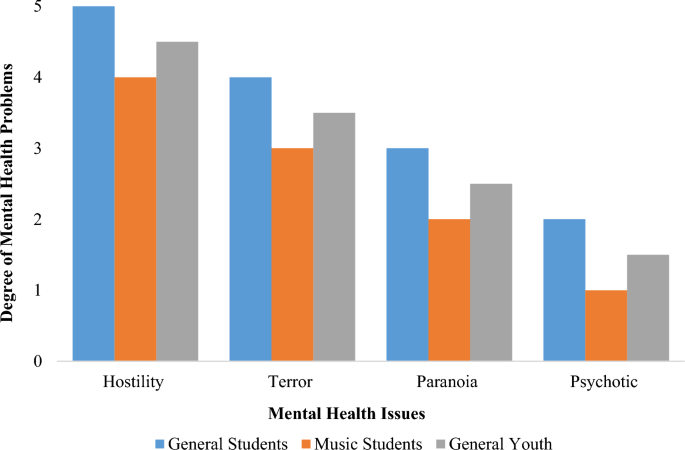Music Education and Mental Health
A
Brief Overview of How Music Can Help With Personal Development
Has the concept of mental health been
something you often ponder about? Do you wonder, especially as a student, if
what you’re feeling is normal or are you constantly overwhelmed but unaware of
it. We are here to help you figure out how being a student, you can choose
courses and classes that also help with your mental health. In this article, we
will specifically review and discuss how music education and mental
health go hand-in-hand. Music, in general, is a phenomenon enjoyed by all and
one that transcends across boundaries. With the world evolving and prospects
being available, the music industry in the educational spectrum has opened up
opportunities for people to explore the concept as a profession.
Cognitive Benefits and Emotional Well-Being
The word cognition means to understand and
discern knowledge through thoughts, experiences and situations. Music education
requires a candidate to learn theories, understand notes and memorize them.
This further aids retention, memory and even problem-solving capabilities
through creative thinking. Now you might be wondering how music classes can
help with emotional well-being.
The study of music requires pattern
recognition and critical thinking. Processing and understanding multiple
concepts together The genre of music and its kind has a great effect on a
person’s feelings. It also inclines towards people’s preferences of music based
on their moods. For the very same reason, music-therapy is a distinguished way
of healing and reducing stress. Through coursework, as part of your education,
you get to learn more about the health correlation with music.
Read more about how music classes can help you achieve your musical goals.
Research and studies have to say:
Based on the research and study published by
the American Psychological Association - Journal of Educational Psychology (A
Population-Level Analysis of Associations Between School Music Participation
and Academic Achievement) “Schools with robust music programs report
higher attendance rates and lower dropout rates, contributing to better overall
mental health among students”
With respect to cognitive benefits, a study
conducted by the Brain and Creativity Institute at the University of Southern California
shows that: Students who received music education showed accelerated
development in areas of the brain responsible for language acquisition and
reading skills. The aforementioned cognitive development also aids better
mental health.
Music Education For Personal and Professional Growth
Learning music prerequisites the importance of
discipline, organization and dedication. Practicing an art has to be a repeated
task/activity. Leading music
production institutes offer courses with a curriculum that teach you
how to incorporate discipline as part of your craft and that further helps you
grow personally and professionally. These music
degree courses also offer internships, workshops and training programs
that assuages development. By building discipline you get to understand the
importance of forming a structure to your everyday activities and this
discipline also aids in honing your skills. Once you have mastered these
skills, it constructs a sense of self-esteem and confidence, all leading it to
one feeling good about themselves.
Here’s everything you need to know about how music & piano classes can keep your brain sharp.
Collaborations and Networking:
An imperative part of every profession is to
form connections and maintain networks. Now you probably are wondering how this
fosters personal development. Through interacting with like minded people and
even industry specialists, alongside benefiting your career, you are learning
to interact with people, keep inhibitions aside (if any), step out of your
comfort zone, socialize and learn to communicate effectively. This takes us
back to developing self esteem and self confidence.
Research and studies have to say:
Referring to an article published by the
Division of Research at the University of Maryland - Grand Challenges: Music Education
for All Through Personalized AI and Digital Humanities “Scientific studies in modern times
have repeatedly proven that playing an instrument impacts brain development,
academic achievement, and mental health”. The article also talks about the
access to music education for marginalized communities and how the
post-pandemic times brought a quick shift to this pattern.

Music Education and Age Groups
Studies show that the effect of learning and
listening to music, in relation to mental health can begin from as early as
toddlerhood. Let us dwell into how music education helps teenagers and you
adults who are music degree aspirants. Oftentimes, through instructions
and mastering compositions, students get to make use of music as an outlet to
express emotions. It is to be understood that every aspect of this self
expression is linked to personal and professional growth.
-
The satisfaction of being able to
pursue your dream career or course
-
Building self confidence by
learning new instruments and making practicing a habit
-
This self confidence further aids
building self-esteem
-
Self esteem makes one know their
worth and gives them a sense of achievement
All of these coupled together ensure that the student excels in their career.
For students aspiring to music as a profession,
here is: A guide for students considering a career in music.
Conclusion
Through learning music, a student gets to find
themselves. In today’s fast moving world, with everything fleeting, realizing
that communication and self expression is beyond just words is a fascinating
theory. Although education is important, in addition to it, mental wellbeing
must also be checked up on. Music education and music production classes
have proven to be sources that cater to all the aforementioned links it has
that aids betterment of a music aspirant's mental health.
Comments